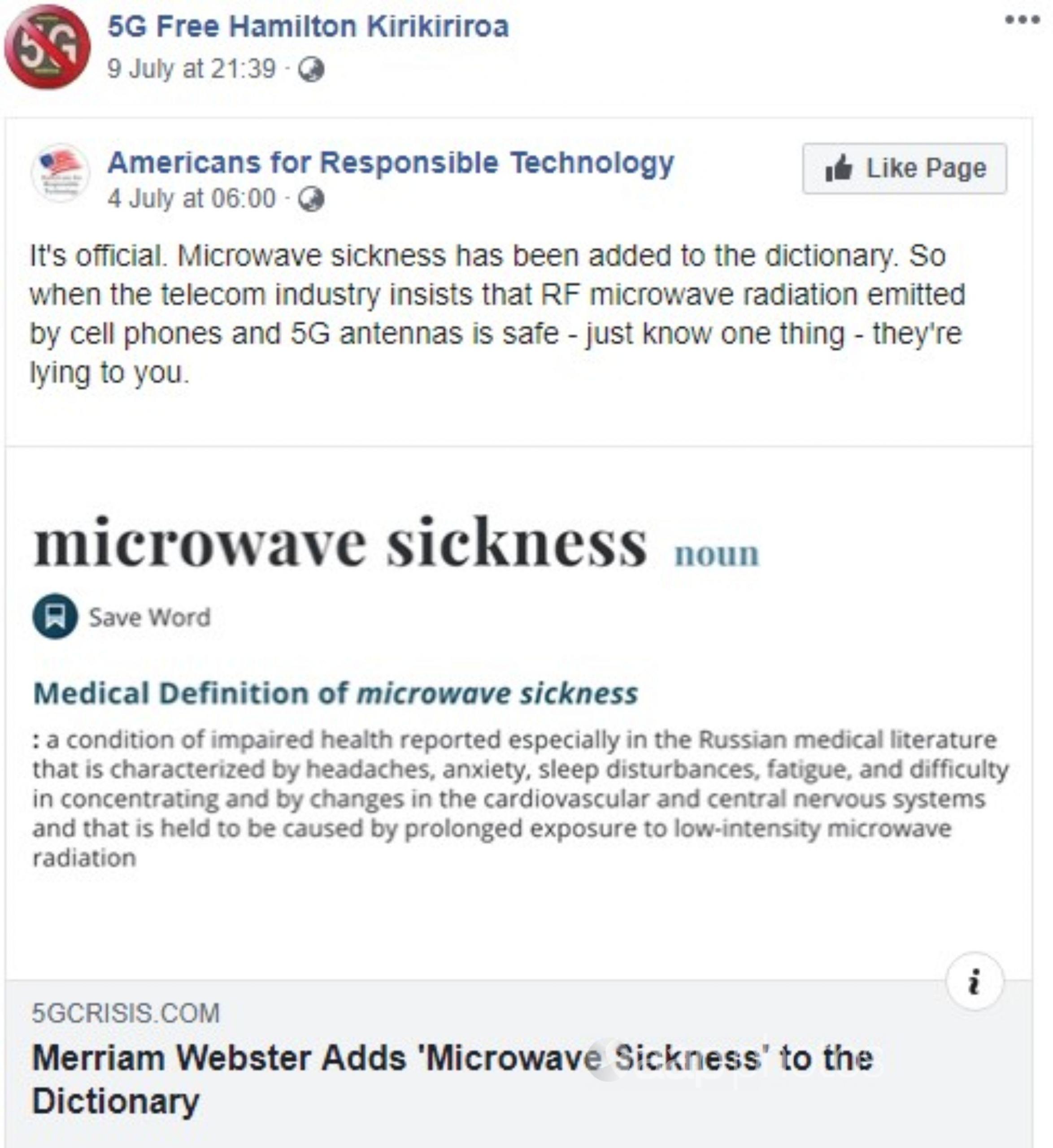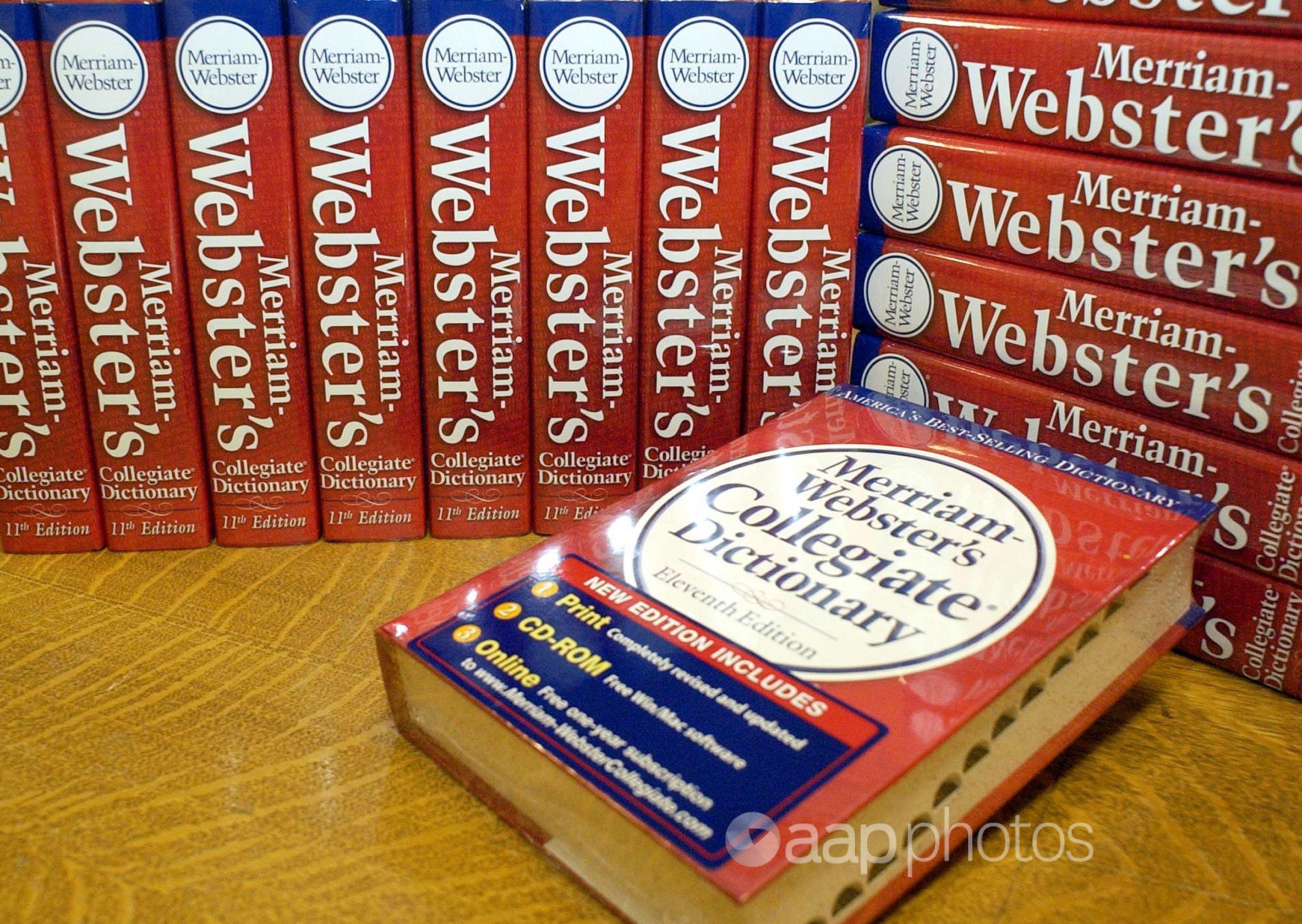The Statement
A social media post claims the term ‘microwave sickness’ has recently been added to the Merriam-Webster dictionary.
The Facebook post reads: “It’s official. Microwave sickness has been added to the dictionary. So when the telecom industry insists that RF microwave radiation emitted by cell phones and 5G antennas is safe – just know one thing – they’re lying to you.” Below the text is a screenshot showing a “Medical Definition” of the term and a link to an article titled, “Merriam Webster Adds ‘Microwave Sickness’ to the Dictionary” by 5GCRISIS.COM.
The July 9 post by 5G Free Hamilton Kirikiriroa was first posted by Americans for Responsible Technology on July 4 and has received more than 330 shares.

The Analysis
The rollout of the 5G network in New Zealand has raised many health concerns by opponents of the mobile wireless technology. The Facebook post by NZ page 5G Free Hamilton Kirikiriroa features a July 3 blog post to highlight a definition of ‘microwave sickness’.
The 5G Crisis – ‘A Project of Americans for Responsible Technology’ blog post reads, “Microwave sickness has now been formally added to the Merriam Webster dictionary,” and links to the noun ‘microwave sickness’ in the Merriam-Webster Medical Dictionary.
To examine whether ‘microwave sickness’ was recently added to the Merriam-Webster dictionary, AAP FactCheck conducted an internet archive search of the entry’s web address and found it dated back to at least 2009.
Merriam-Webster editor-at-large and lexicgrapher Peter Sokolowski told AAP FactCheck in an email that ‘microwave sickness’ was included in the first printing of the Medical Dictionary in 1986.
Mr Sokolowski explained that Merriam-Webster dictionaries were not open-source publications.
“Merriam-Webster is the oldest and best-selling reference publisher in the United States,” he AAP FactCheck. “Our books are professionally edited and researched, going back to Noah Webster’s first dictionary in 1806.”
Regarding Merriam Webster’s lexicography, he referred AAP FactCheck to the article “How does a word get into a Merriam-Webster dictionary?” on its website.
“To decide which words to include in the dictionary and to determine what they mean, Merriam-Webster editors study the language as it’s used,” the article says. “They carefully monitor which words people use most often and how they use them.”
The article also goes on to detail how a word progresses from a citation to a dictionary entry. “To be included in a Merriam-Webster dictionary, a word must be used in a substantial number of citations that come from a wide range of publications over a considerable period of time. Specifically, the word must have enough citations to allow accurate judgments about its establishment, currency, and meaning.”

The Verdict
Based on the evidence, AAP FactCheck found the claims in the Facebook post to be false. The term “microwave sickness” has not recently been added in the Merriam-Webster Medical Dictionary. Merriam-Webster lexiographer Peter Sokolowski told AAP FactCheck it was first included in 1986.
False – The primary claims of the content are factually inaccurate or misleading.
* AAP FactCheck is accredited by the Poynter Institute’s International Fact-Checking Network, which promotes best practice through a stringent and transparent Code of Principles. https://aap.com.au/
All information, text and images included on the AAP Websites is for personal use only and may not be re-written, copied, re-sold or re-distributed, framed, linked, shared onto social media or otherwise used whether for compensation of any kind or not, unless you have the prior written permission of AAP. For more information, please refer to our standard terms and conditions.

















